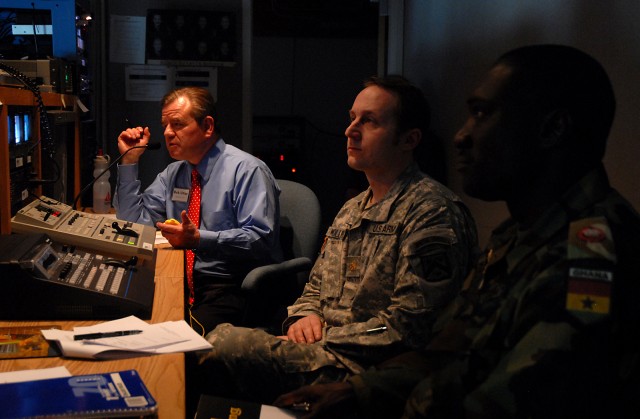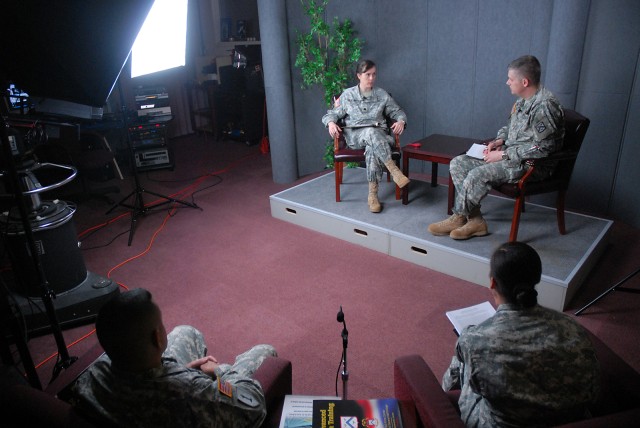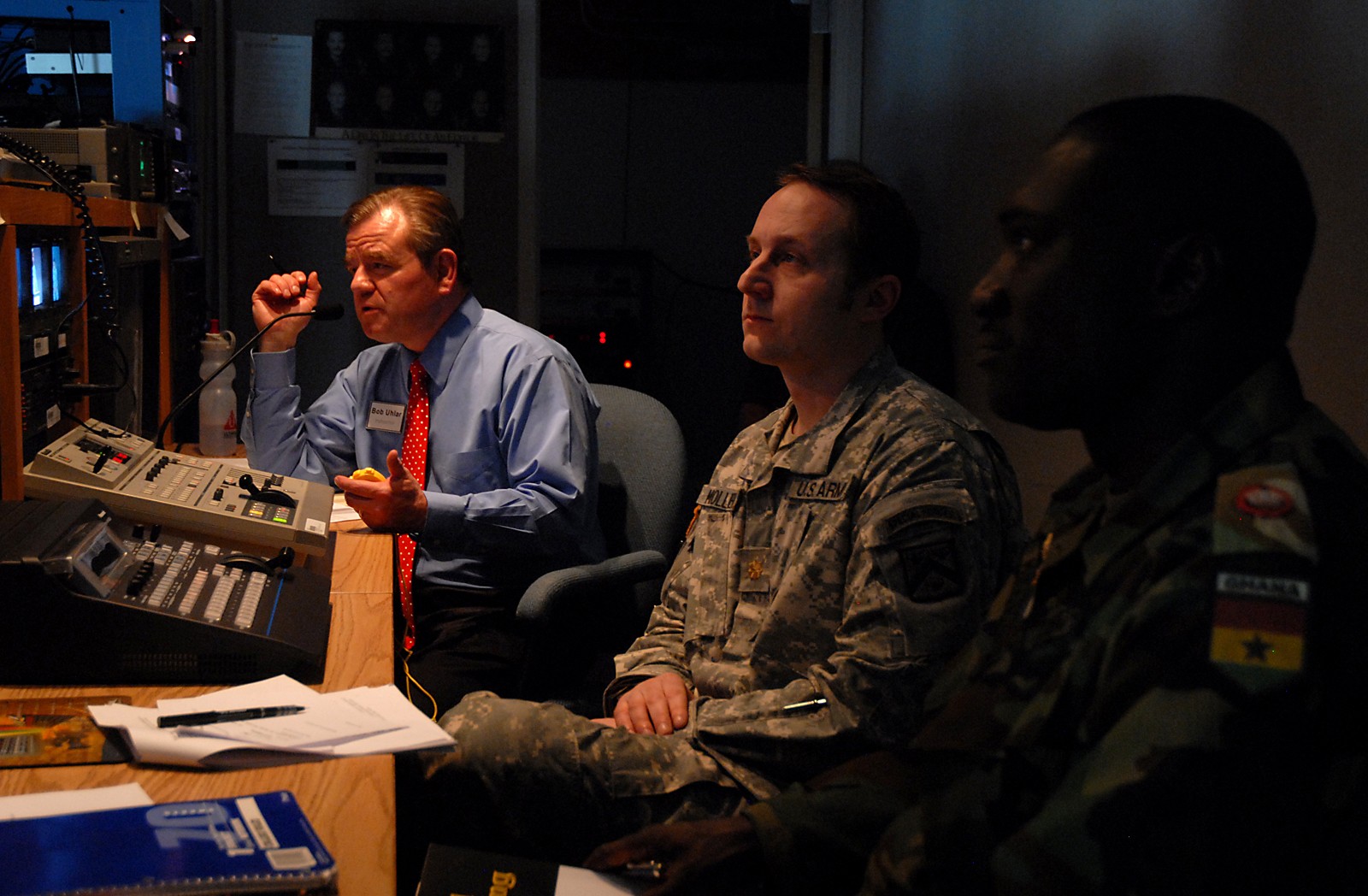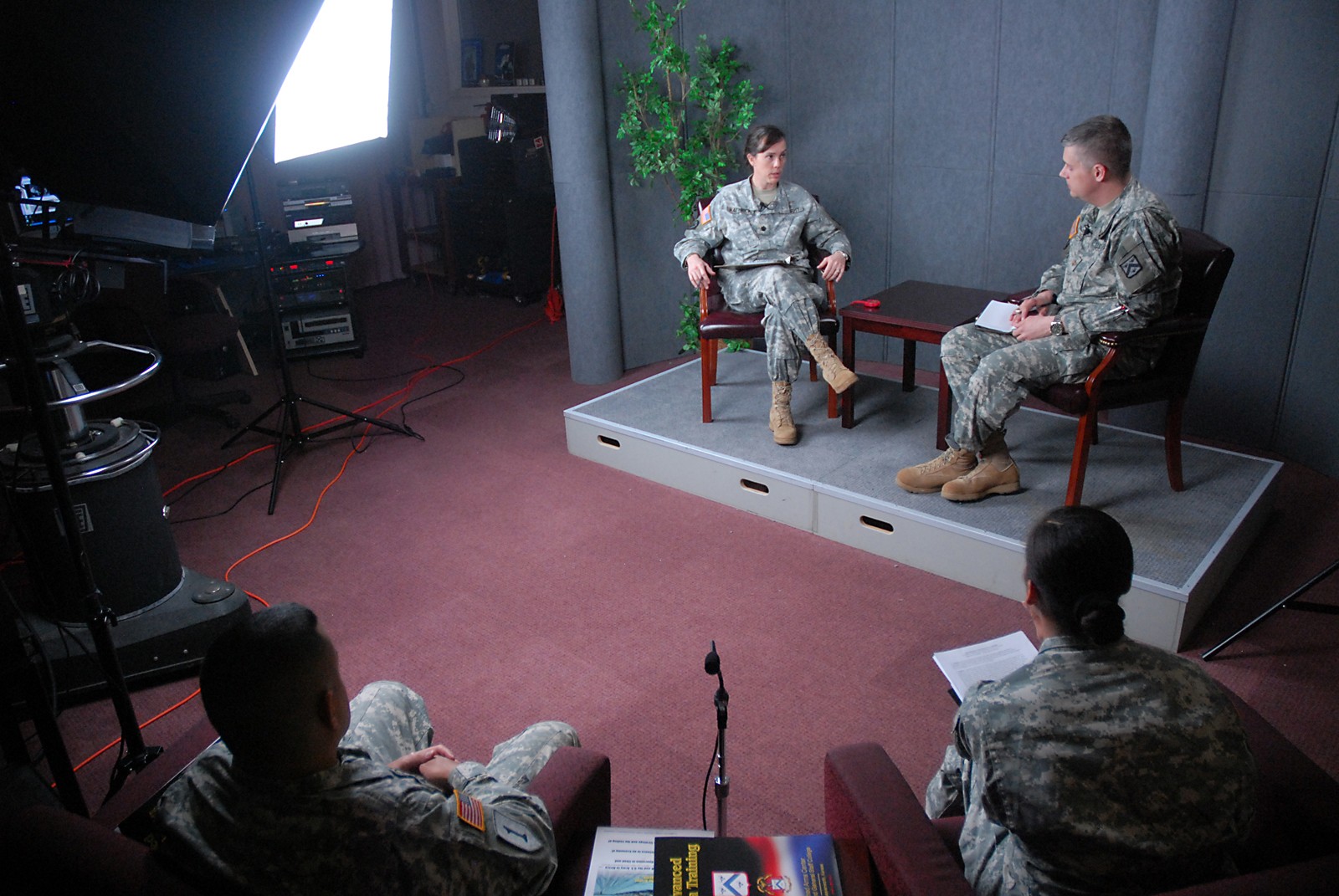FORT LEAVENWORTH, Kan. (March 4, 2010) - A new program at the Command and General Staff College is putting its students in the hot seat in front of reporters.
Advanced Media Training is a four-hour seminar that gives Intermediate Level Education students training on giving press conferences, live interviews with members of the press and using social media. The course was developed this semester and is taught by Lt. Col. Stacy Bathrick, CGSC director of strategic communication, training and outreach, and Bob Uhlar and Steve Liewer, Advanced Media Training instructors. Uhlar and Liewer come with decades of experience as reporters for nationwide news organizations.
Maj. Leslie Parks, a student in Intermediate Level Education class 2010-01, was in the first Advanced Media Training seminar in January. He said he was immediately able to use his newfound public speaking skills when he spoke at a Rotary Club luncheon about serving in the Army National Guard. He was able to share his command message about the Guard's strengths in using full-time farmers, financiers, and other business people in the military.
"I thought (the training) was very positive," he said. "It should be included in the core curriculum. In the information era, media is everywhere."
The seminar begins with an hour-long classroom lesson about sharing a command information message, critiquing a real press interview by a general officer, and tips for talking to members of the press. Instructors also provide students with an extensive media packet that includes a primer for using various types of social media, Department of Defense policies on social media, tips for dealing with the press by Gen. David Petraeus and a Military Review article, "Learning to Leverage New Media," by Lt. Gen. William B. Caldwell IV, Dennis Murphy and Anton Menning. It also includes a pocket-sized reminder with blocking phrases and questions to ask reporters.
Each student goes through three types of interview simulations: a remote interview with a reporter, a live, on-camera interview with a reporter and a press conference. At the end of the interview simulations, instructors and fellow students provide students with immediate feedback.
Maj. Alex Shaw, of ILE class 2010-02, experienced conducting a press interview in front of the hot, bright lights used for television filming. He said being up in front of a camera is a lot harder than it looks, and thought the training was a good idea for any Soldier.
"Stuff happens so much in combat, just because you're a major or private in the Army doesn't mean you won't get a camera in your face," he said.
Maj. William Kwabiah, a student from Ghana in the 2010-02 class, said he's looking forward to putting his skills to use in his home country. Ghana recently repealed a criminal libel law, Kwabiah said, and members of the press in his country are vigorous and engaged. His Army's attitude toward the media has drastically changed since he first joined the military in 1995.
"With time, we've realized the media is a tool," he said. "We can use it to propagate our message."
Bathrick said CGSC developed the seminar using the Army's media training of general officers as a template. Seminar designers also visited the Department of the Navy and Air Force public affairs offices to find out how they handle media training. While the School for Command Preparation has a class for incoming commanders, Bathrick said the CGSC training was specifically developed for intermediate level officers.
"One thing different about our training is when the Department of the Army trains its general officers, it relies on their command public officer to inform them of key issues," she said. "For our training, what we've done is we've taken scenarios that the students are likely to find themselves in when they deploy to Iraq or Afghanistan."
Bathrick said members of the Army Reserve and Mexican Army were planning to visit CGSC's Advanced Media Training seminar as a model for their own training. ILE students who have completed the training are blogging about their experience at http://usacac.army.mil/blog/blogs/amt/default.aspx.
Bathrick said the training is also open to other organizations or tenants on post. Nine people can train at a time. Interested people can call Liewer at 684-7369 or Uhlar at 684-7368.




Social Sharing